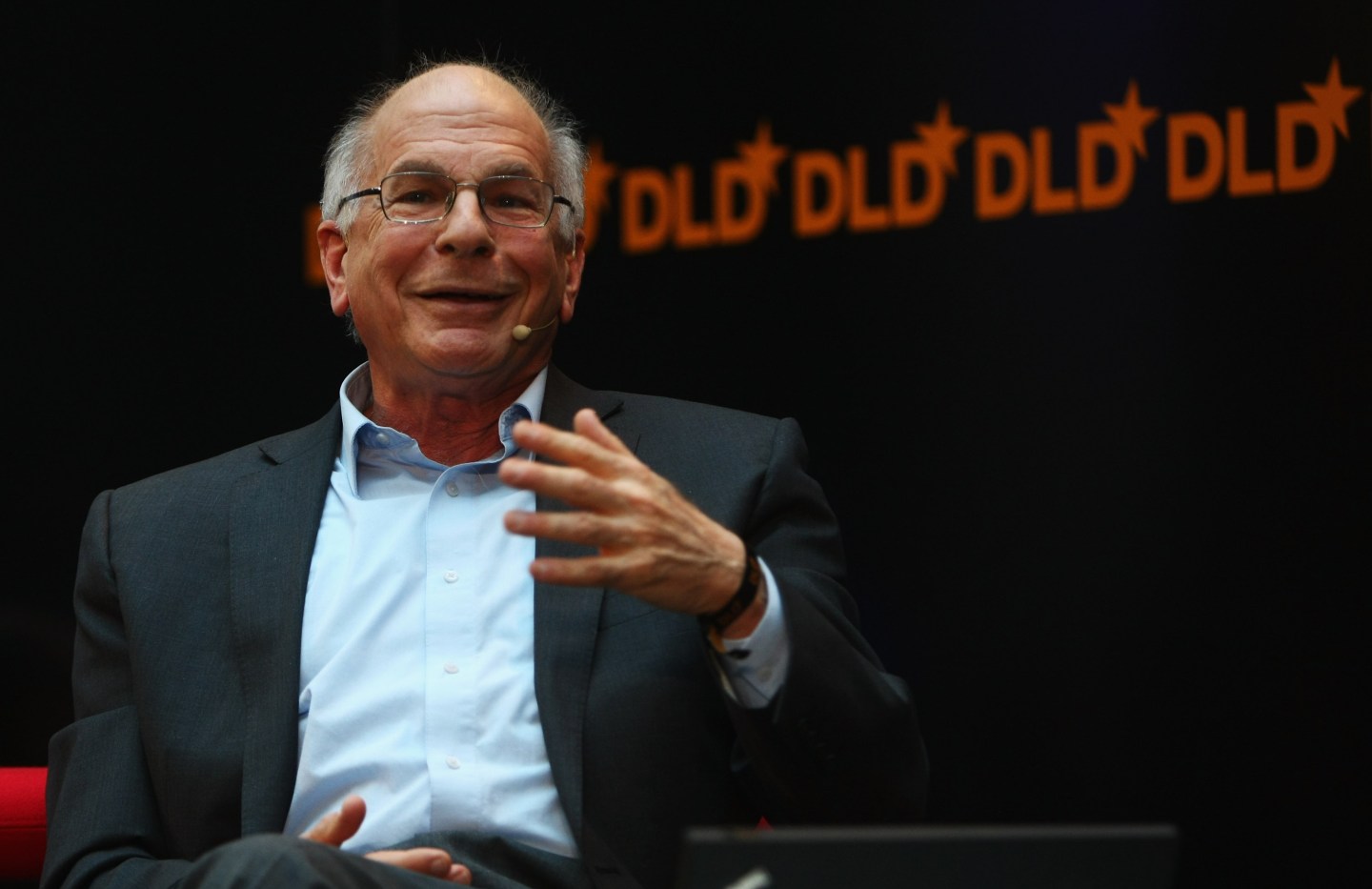Daniel Kahneman, a psychologist whose work casting doubt on the rationality of decision-making helped spawn the field of behavioral economics and won him a Nobel Prize, has died. He was 90.
He died on Wednesday, the Washington Post reported, citing his stepdaughter, Deborah Treisman, the fiction editor for the New Yorker. No other details were available.
Kahneman upended assumptions about rationality that had dominated economics for decades. He was able to show the logic behind a number of puzzling behaviors — why people refuse to sell stocks that have lost value, or why they will drive to a distant store to save money on a small item, but not to make the same saving on an expensive one.
Kahneman was “the world’s most influential living psychologist,” Harvard University professor Steven Pinker told the Guardian in 2014. “His work is really monumental in the history of thought.”
Working with psychologist Amos Tversky, Kahneman isolated biases that distort decision-making. These include aversion to loss and how the way a question is framed can affect the answer. For example, if a health program will save 200 lives and result in 400 deaths, whether it’s accepted may depend on whether its proponents highlight the lives saved or the lives lost.
Kahneman said that the brain reacts quickly and on the basis of incomplete information, often with unfortunate results. “People are designed to tell the best story possible,” he said in a 2012 interview with the American Psychological Association. “We don’t spend much time saying, ‘Well, there is much we don’t know.’ We make do with what we do know.”
Under the rubric “prospect theory,” Kahneman and Tversky sparked a revolution in psychology and then in economics, which had seldom been considered an experimental science. The field of behavioral economics arose near the end of the 20th century as a group of young economists used their insights to challenge classical notions of “homo economicus,” the rational actor.
‘Cognitive minefield’
In 2011, Kahneman published the bestselling Thinking, Fast and Slow, finding a wide audience for his ideas. The study presented a comprehensive view of the mind as containing two systems, one fast and intuitive, the other slow and more rational. It offered advice for making better decisions, starting with: “Recognize the signs that you are a cognitive minefield.”
Daniel Kahneman was born on March 5, 1934, in Tel Aviv, where his mother was visiting relatives. The family lived in France, having emigrating there from Lithuania. His father, a Jewish chemist, was arrested because of his religion during World War II, then released. After the war, the family moved to Palestine.
Kahneman received a bachelor’s degree in psychology from the Hebrew University in Jerusalem in 1954. Later that year, he joined the Israel Defense Forces, where he was assigned to the psychology branch and put in charge of evaluating recruits. The system he developed was used for decades, he wrote in his Nobel Prize autobiography.
He received a Ph.D. from the University of California at Berkeley in 1961 and returned to the Hebrew University to teach in the psychology department. In 1969, he met Tversky, who became his collaborator for over a decade in his Nobel Prize-winning work.
“Amos and I shared the wonder of together owning a goose that could lay golden eggs — a joint mind that was better than our separate minds,” Kahneman wrote. “I have probably shared more than half the laughs of my life with Amos.”
Ultimatum game
Their collaboration produced papers, books and innovative experiments such as the ultimatum game, in which a person is given money on the condition that they share it with a second person. Typically, the second person will not take less than a 20% or 30% share, even though it would be rational to accept any amount.
The close partnership between Kahneman and Tversky became more widely known with the 2016 publication of Michael Lewis’s The Undoing Project.
Kahneman had appointments at the University of British Columbia in Vancouver and at Berkeley. In 1993, he moved to Princeton University in New Jersey, where he was a psychology professor and also taught at the Woodrow Wilson School of Public and International Affairs.
In later years he studied happiness — more technically, hedonics: things that make experiences pleasant or unpleasant, and how to measure that. One notable finding was that wealthy people were rarely happier than those with lower incomes, challenging the idea that money buys happiness.
Kahneman shared the 2002 Nobel Prize with Vernon Smith, another experimental economist.
Kahneman and his wife, Irah Kahn, had two children: Michael and Lenore. The couple divorced, and he later married psychologist Anne Treisman, who died in 2018.












